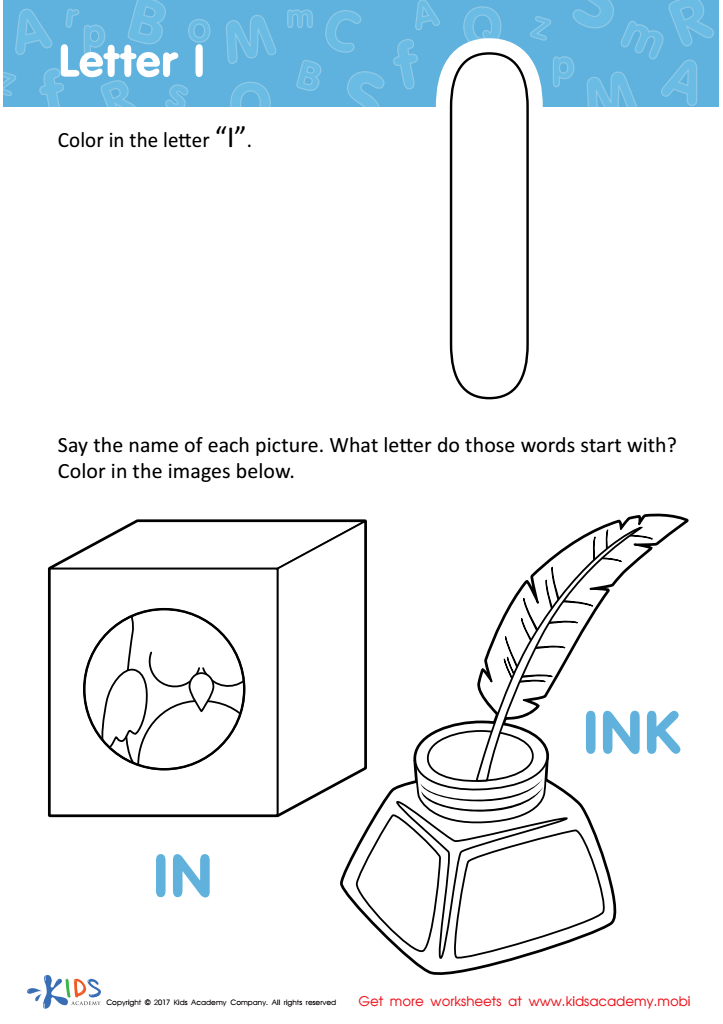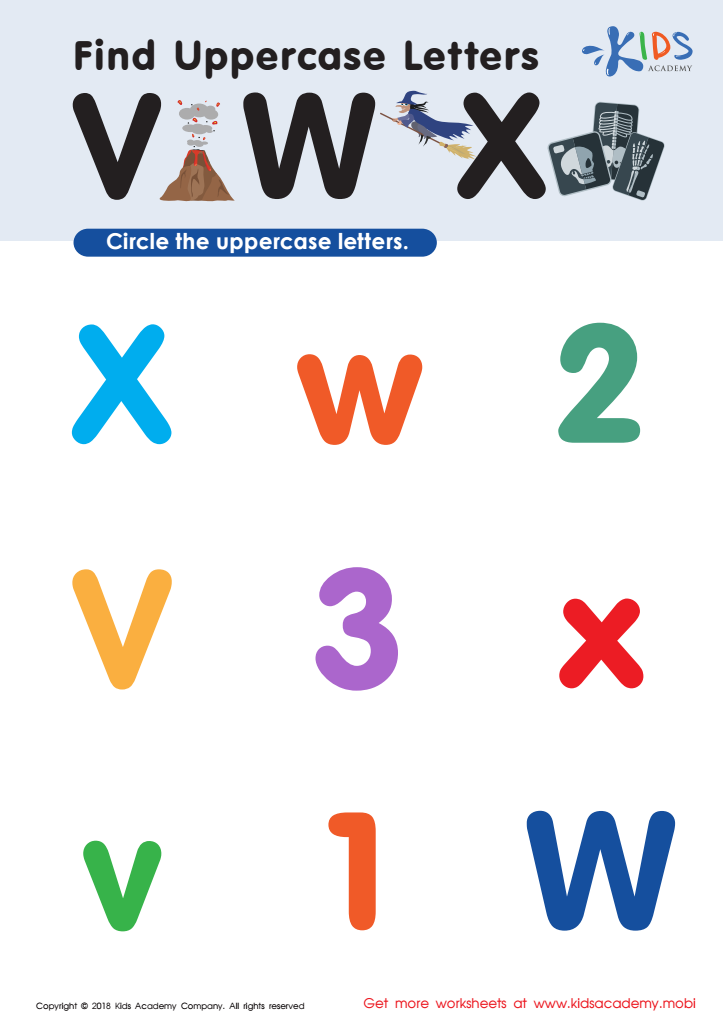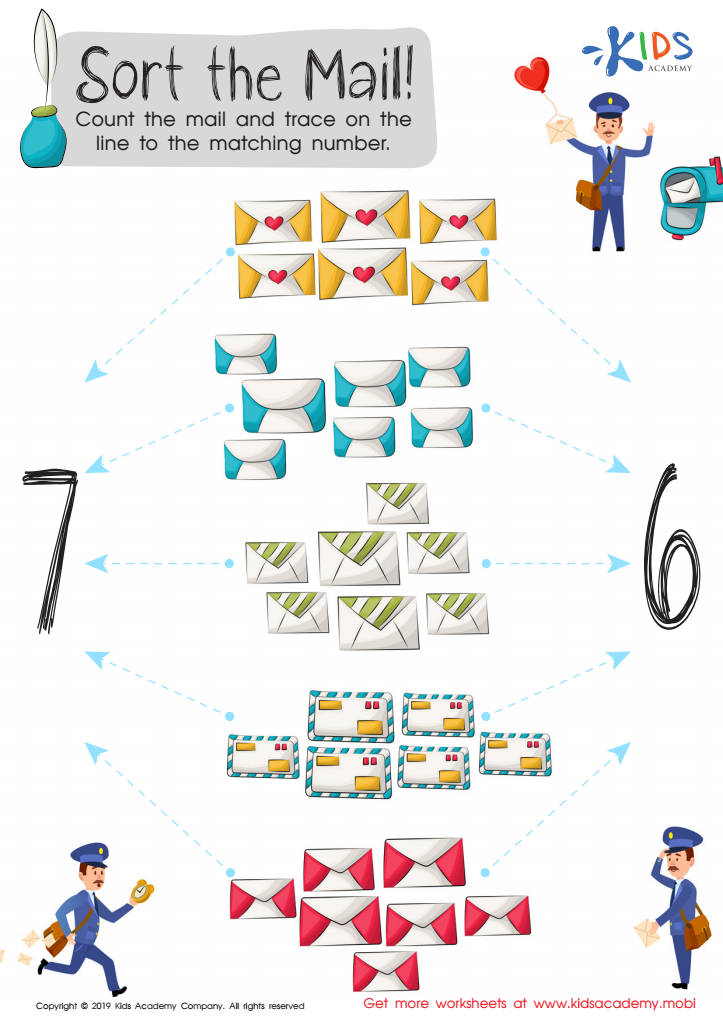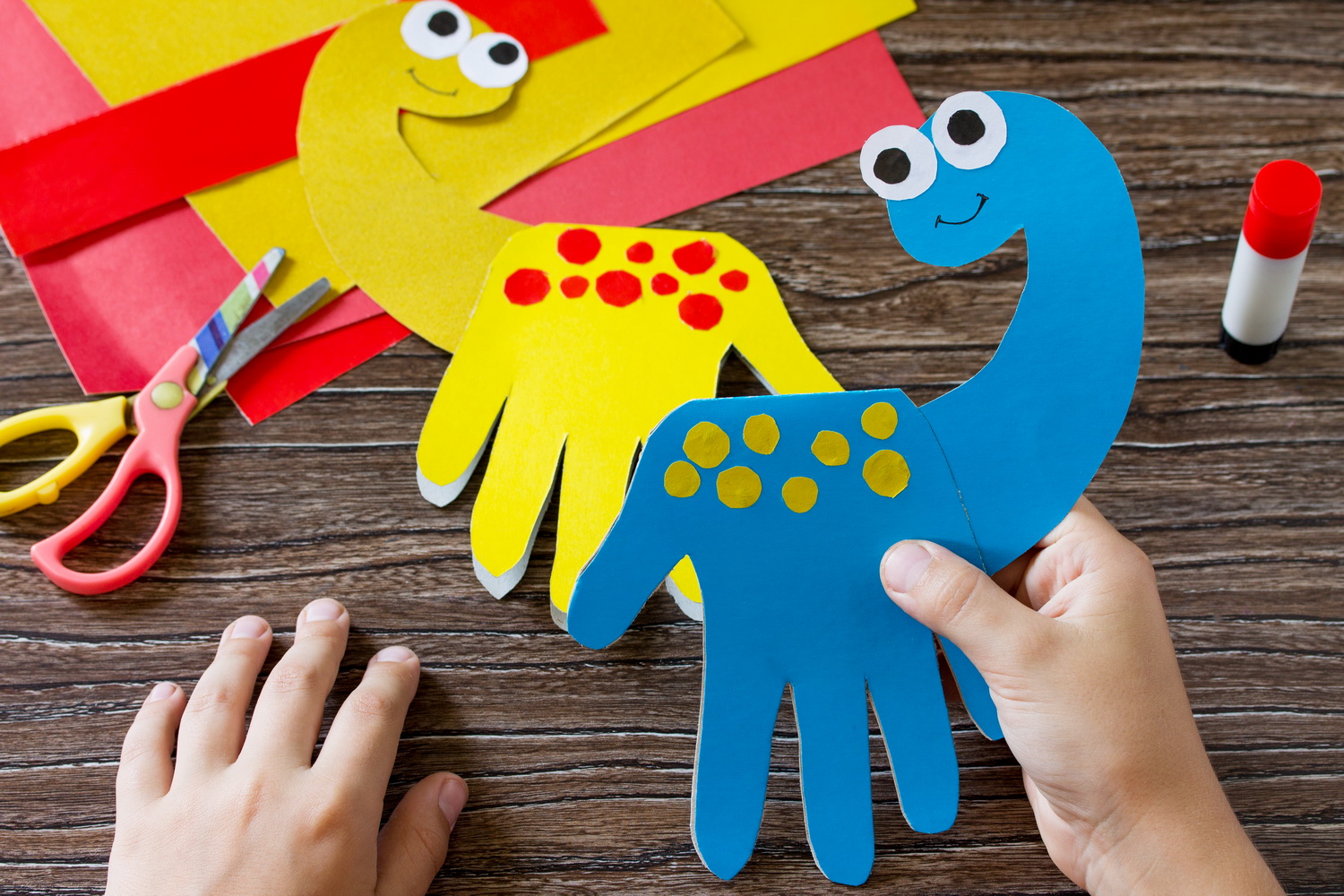Alphabet Knowledge Worksheets for Ages 4-7
3 filtered results
-
From - To
Boost your child's literacy with our Alphabet Knowledge Worksheets for ages 4-7! Designed to strengthen early reading and writing skills, these fun and engaging worksheets help kids master letter recognition, phonics, and basic vocabulary. Each printable sheet combines colorful visuals and interactive activities to make learning enjoyable and effective. Perfect for preschoolers and early grade students, our worksheets adapt to individual learning paces and contain playful exercises that stimulate young minds. Make alphabet mastery a playful adventure and set the foundation for your child's educational success. Download now to bring learning to life!


Letter I Coloring Sheet


Find Uppercase Letters V, W, X Worksheet


Sort the Mail Worksheet
Alphabet knowledge is a cornerstone of early literacy, making it crucial for both parents and teachers to prioritize this skill for children aged 4-7. Understanding the alphabet forms the foundation for reading and writing, essential skills for lifelong learning and academic success. When children recognize letters and their corresponding sounds, they can start decoding words, which is a vital step toward fluent reading.
Early exposure to the alphabet fosters a positive attitude toward literacy. When children feel confident in their ability to identify letters, they are more likely to enjoy reading and learning activities, contributing to a positive educational experience. Moreover, strong alphabet knowledge supports vocabulary development. Knowing the letters and sounds allows children to decode new words, enriching their language skills and enhancing their communication abilities.
On a practical level, alphabet knowledge impacts everyday tasks. Whether following instructions, reading signs, or writing names, a firm grasp of the alphabet enables young children to navigate their world more independently and effectively. Tailoring learning experiences to build this knowledge can also provide a sense of accomplishment, boosting a child's self-esteem and motivation to learn.
Overall, prioritizing alphabet knowledge for young learners equips them with the critical skills necessary for both academic achievement and day-to-day competence, making it an essential focus for parents and teachers alike.
 Assign to My Students
Assign to My Students















